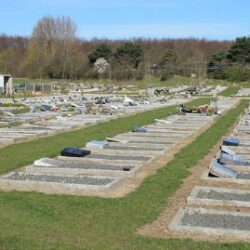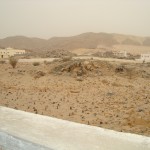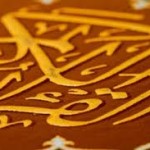Salah ad-Duha
Shortened Question:
What is the time for Salah ad-Dhuha – the `Chasht prayer`?
Question:
As-Salamu Alaikum wa Rahmatullah. My question is regarding Salatud-Dhuha – the `chasht prayer`. I`d like to know how many minutes before zenith I can pray it (in the U.K) and how many minutes after sunrise. Can you please give me a timespan for when I can pray it? JazakAllahu Khayr
Answer:
In the Name of Allah, the Most Gracious, the Most Merciful.
As-salāmu ‘alaykum wa-rahmatullāhi wa-barakātuh.
The time for observing Salah al-Ishraq commences approximately twenty minutes after sunrise[1] when the sun is above the horizon by the length of a spear and the sun becomes very bright so much so that it becomes difficult to directly look at with the naked eye[2] and ends at mid-morning (halfway between sunrise and zenith). However, it is virtuous to observe it immediately after its time sets in[3].
The time for Salah ad-Dhuha prayer (Chasht prayer) is after the time of Salah al-Ishraq, from mid-morning, until mid-day (Zawal). It is more virtuous to observe it after a quarter of the day has passed by[4].
For example, presently in winter, if sunrise in U.K is at 8:25am and Zawal (midday) is at 12:12pm (with Zohar beginning time at 12:22pm), the time of Salah al-Ishraq will be from at around 8:45am; while Salah ad-Dhuha could be observed anytime between approximately 10:15am till 12:12pm.
NB: the time at which mid-morning transpires will alternate throughout the year depending on the sunrise and mid-day timings and thus should be calculated in order to determine the time for Salah ad-Dhuha.
And Allah Ta’āla Knows Best
Hanif Yusuf Patel
Student Darul Iftaa
UK
Checked and Approved by,
Mufti Ebrahim Desai.
References
[1] After sunrise, 12-15 minutes[Fatawa Rahimiyyah, 4: 82, Dar al-Isha`at, Karachi]; cautiously 20 minutes [Fatawa Mahmudiyyah, 21: 463; 5: 334, Dar al-Iftaa Jamiah Faruqiyyah, Karachi]
[2] عند طلوع الشمس إلى أن ترتفع الشمس وتبيض قدر رمح أو معين
[Tahtawi ala al-Falah, p.106; Al-Bahr ar-Ra`iq, 1: 434, Maktabah Rashidiyyah; Radd al-Muhtar ala ad-Durr al-Mukhtar, 1: 371, H. M. Saeed Company; Hashiyat at-Tahtawi ala ad-Durr al-Mukhtar, 1: 179-80, Dar al-Ma`rifah, Beirut; Fatawa Qadhi Khan ala Hamish al-Hindiyyah, 1: 74-5, Maktabah Rashidiyyah; Al-Halabiy al-Kabir, p.246, Suhail Academy Lahore; Fatawa Mahmudiyyah, 5: 334, Dar al-Iftaa Jamiah Faruqiyyah, Karachi]
[3] [Ahsan al-Fatwa, 3: 467, H. M. Saeed Company; Behishti Zewar, 2: 23, Maktabah al-Ilm, Lahore]
[4]
قال في العلائية وندب أربع فصاعدا في الضحى علي الصحيح من بعد الطلوع إلى الزوال ووقتها المختار بعد ربع النهار
[Radd al-Muhtar ala ad-Durr al-Mukhtar, 1: 639]
[Ahsan al-Fatwa, 3: 467, H. M. Saeed Company]
DISCLAIMER:
The Ask Our Imam site hopes to respond to queries relating to Islamic law. It is not an Islamic Law Shari`ah Court. The questions and answers found on this website are for educational purposes. However, many of the rulings rendered here are distinct to the specific scenario and thus should be read in conjunction with the question and not taken as a basis to establish a verdict in another situation or environment. This site bears no responsibility in these responses being used out of their intended context, nor to any party who may or may not follow the responses given and is being hereby exempted from loss or damage howsoever caused. None of the responses rendered may be used as evidence in any Court of Law without prior written consent of Our Imam. Any reference to another website or link provided in our responses or article should not be taken as an endorsement of all the content on that website; in fact, it is restricted to the particular material being cited.
Posted in Salaah (Prayer) on 17th Jan 2016 by Our Imam | 1571 Views











